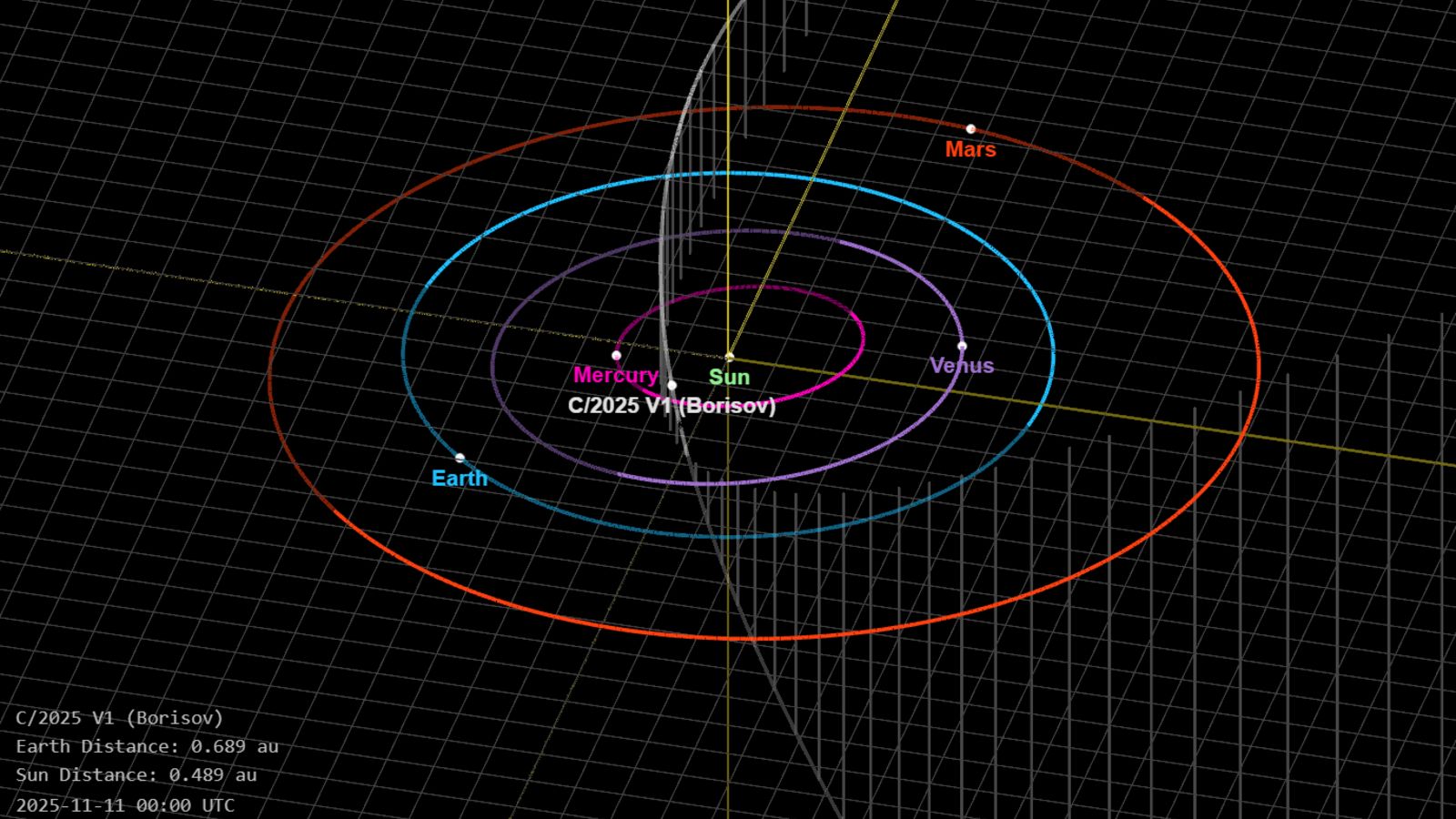Refresh
2025-11-11T12:01:09.689Z
Running AMOC
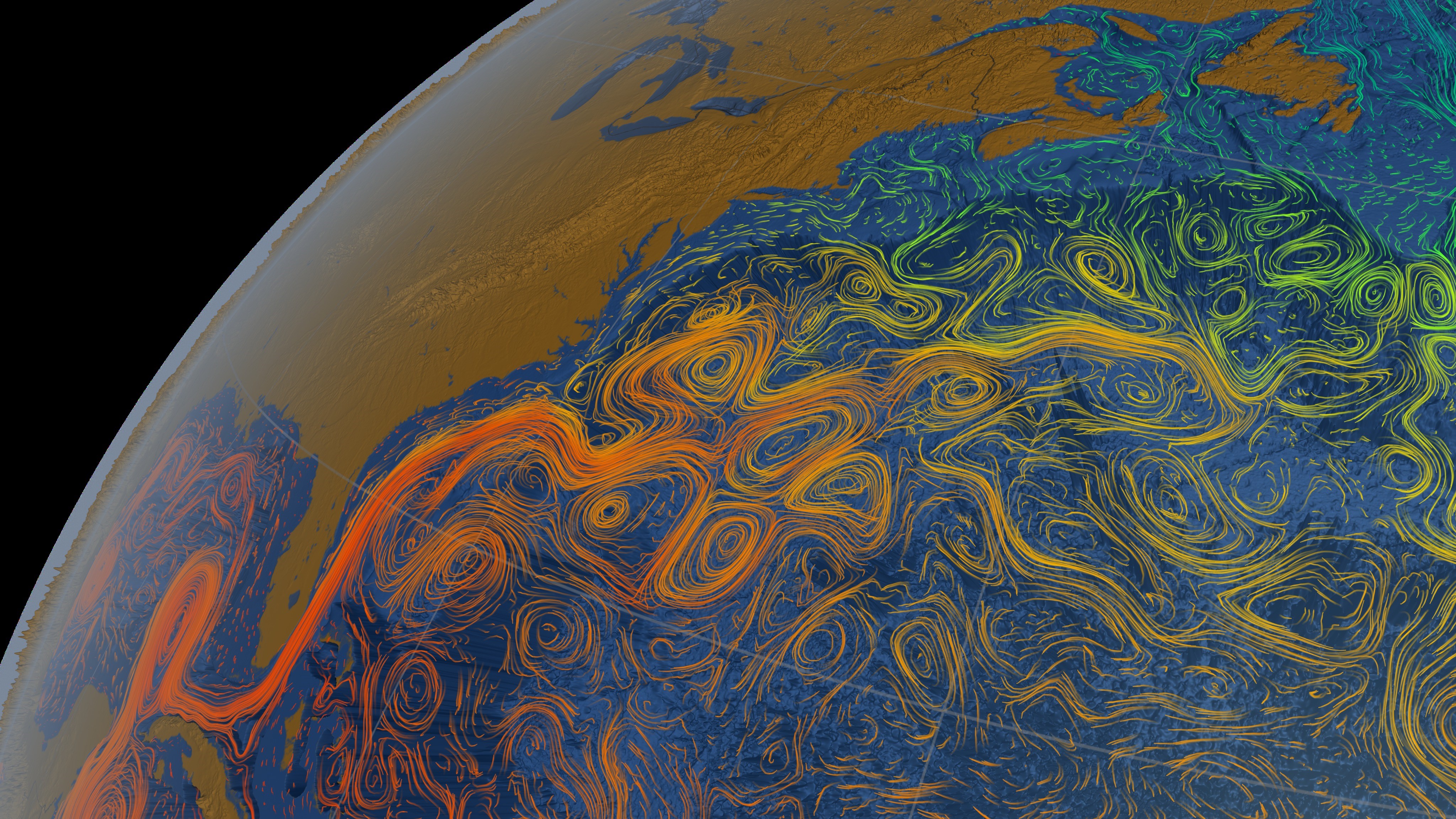
A visualization from space of the Gulf Stream as it unfurls across the North Atlantic Ocean. (Image credit: NASA/Goddard Space Flight Center Scientific Visualization Studio)
It’s a simple rule that as you get further away from the equator, your climate gets colder.
Yet not everywhere follows this trend. Take Western Europe for example: New York City and Madrid lie along roughly the same latitude, yet Madrid’s average January temperatures are ten degrees Fahrenheit (5.6 Celsius) hotter than those of the Big Apple.
So what gives? The answer lies in a web of warm ocean currents called the Atlantic Meridional Overturning Circulation (AMOC) that sustains Europe’s high temperatures, yet is showing troubling signs of weakening and even collapse sometime this century.
You can read the full story here.
2025-11-11T11:39:03.248Z
New Comet approaches
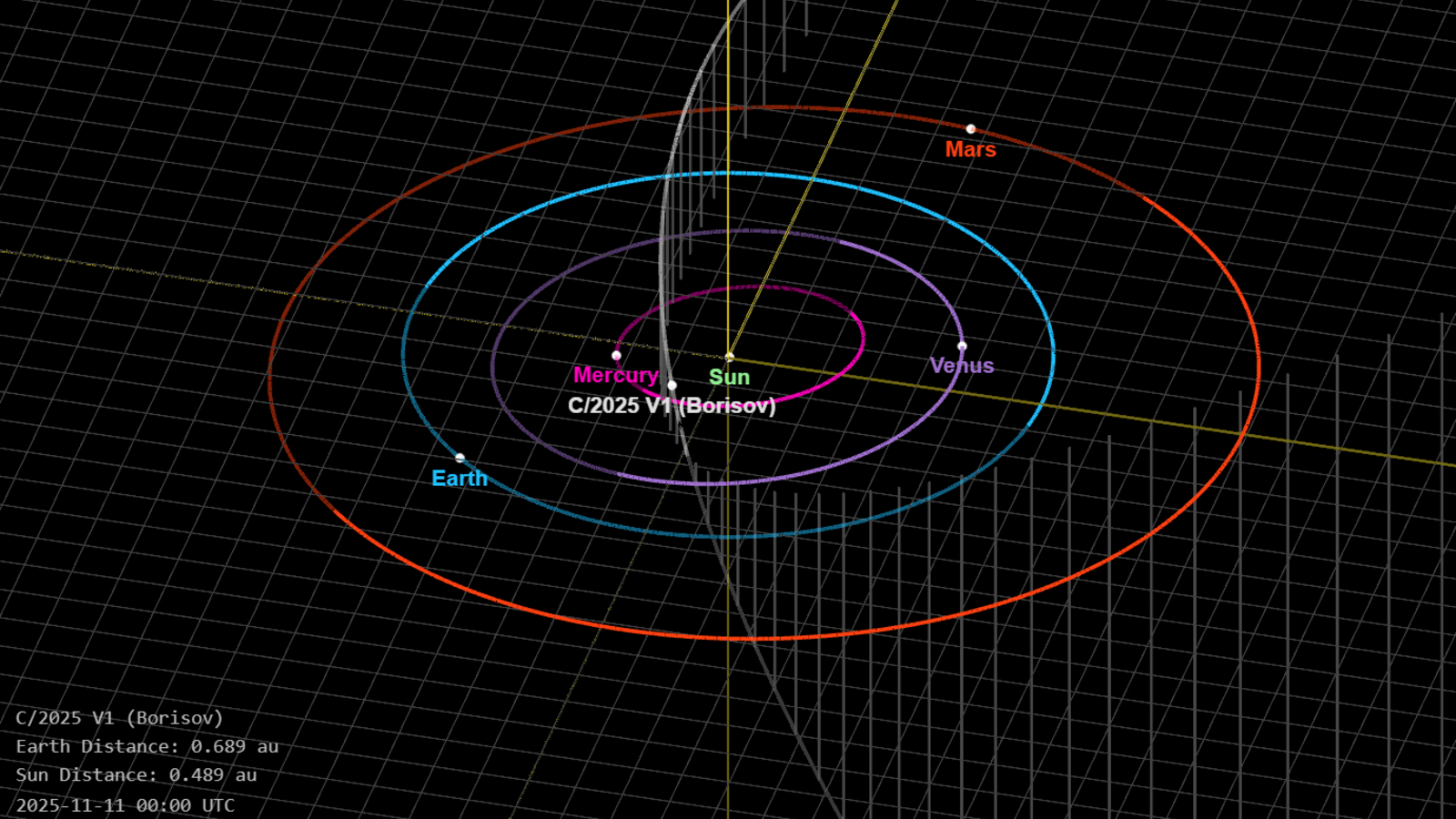
An orbital diagram showing the new comet C/2025 V1 (Borisov) at its closest point to Earth on Tuesday (Nov. 11) (Image credit: NASA/JPL)
Good morning, science fans! We’re back again with fresh comet news, this time relating to a new space snowball. Before you ask, it’s not Comet 3I/ATLAS (although we are working on an update on that too).
Called C/2025 V1 (Borisov), this new comet has a high eccentricity, a vanishing tail and is due its closest flyby of Earth today. Unlike 3I/ATLAS, C/2025 V1 does not come from interstellar space, but is believed to originate from the Oort cloud — the icy sphere of debris that surrounds our solar system.
You can read the full story here.

Ben Turner
Acting Trending News Editor
2025-11-10T19:20:14.271Z
That’s all, folks!

Ben Turner
Acting Trending News Editor
2025-11-10T19:16:43.434Z
Canada loses its measles elimination status

A young child with measles. (Image credit: Shutterstock)
Hi everyone, it’s Nicoletta, Live Science’s Health Editor, here with an update that Canada has just lost its measles elimination status. Measles has been spreading consistently in Canada for over a year, resulting in the announcement made today by health officials.
Measles can be deadly: it kills between 1 and 3 out of every 1,000 children infected. But even those who survive the infection can suffer long-term consequences, from “immune amnesia” to permanent brain damage to a rare progressive condition that puts them into a coma from which they never awake.
The good thing is that we have extremely effective vaccines for measles that prevent both the infection itself and its dangerous knock-on effects. The bad thing is that rates of routine measles vaccinations are trending down, and as a predictable consequence, cases of measles are going up.
Canada’s announcement is a reflection of this global trend, which is being driven both by rising anti-vaccine sentiment and by disruptions to routine childhood vaccination triggered by the COVID-19 pandemic, among other factors. The United States has also seen persistent declines in routine vaccination in recent years, and in turn, large outbreaks of measles, raising questions about the stability of its own measles elimination status.
At the end of the day, the takeaway is that measles is a highly preventable illness that causes a great deal of suffering when it’s allowed to take hold. The measles vaccine represents a triumph of medical science that helped drive down the staggering rate of child death that existed prior to its introduction. Declines in measles vaccination signal a return to a time when a lot more kids died in early childhood than do today — and that, in a word, is concerning.
Read the full story here.

Nicoletta Lanese
Health Editor
2025-11-10T18:41:58.721Z
New ‘almost interstellar’ comet approaches Earth

An orbital diagram showing the new comet C/2025 V1 (Borisov) at its closest point to Earth on Tuesday (Nov. 11) (Image credit: NASA/JPL)
Hello! Senior Staff Writer Harry Baker here. I’ve been covering the infamous alien comet 3I/ATLAS a lot since it was first discovered in early July, so I was surprised to hear of a new “almost interstellar object” that is due to make its closest approach to Earth tomorrow (Nov. 11), especially when some people were speculating that it could be an alien probe.
For the record, this newly discovered comet, dubbed C/2025 V1 (Borisov), is definitely NOT an interstellar object (ISO). But it does share a few similarities with 3I/ATLAS, including a high eccentricity and a vanishing tail. As for it being an alien spacecraft, even renowned alien-hunter Avi Loeb — who has been promoting this theory for months — says that it is unlikely.
And in a completely unrelated coincidence, the new comet was discovered by Gennadiy Borisov, who also discovered the second-ever ISO and 3I/ATLAS’s predecessor “Comet Borisov” in 2019.
Check out the full story here.

Harry Baker
Senior Staff Writer
2025-11-10T17:35:06.901Z
Cosmically, we may have already peaked

A far-infrared image from the Herschel Space Observatory overlaid with optical data from Euclid. (Image credit: Ryley Hill, University of British Columbia, European Space Agency)
It’s good to be in something from the ground floor, but humanity may have come too late for that. Or that’s at least the latest from the Euclid and Herschel telescopes, which have found that star formation has already peaked in our cosmos.
By taking the most comprehensive temperature reading of our universe yet, the space telescopes revealed that galaxies have grown slightly cooler as their star formation rates eased off over the past 10 billion years.
That means that our universe is on course to becoming totally quenched. But before any of us spiral into existential crisis, it won’t be for an unimaginably long time. In the meantime, we can all get therapy, or maybe just feed the ducks.
You can read the full story here.
2025-11-10T16:44:49.390Z
Comet sense?
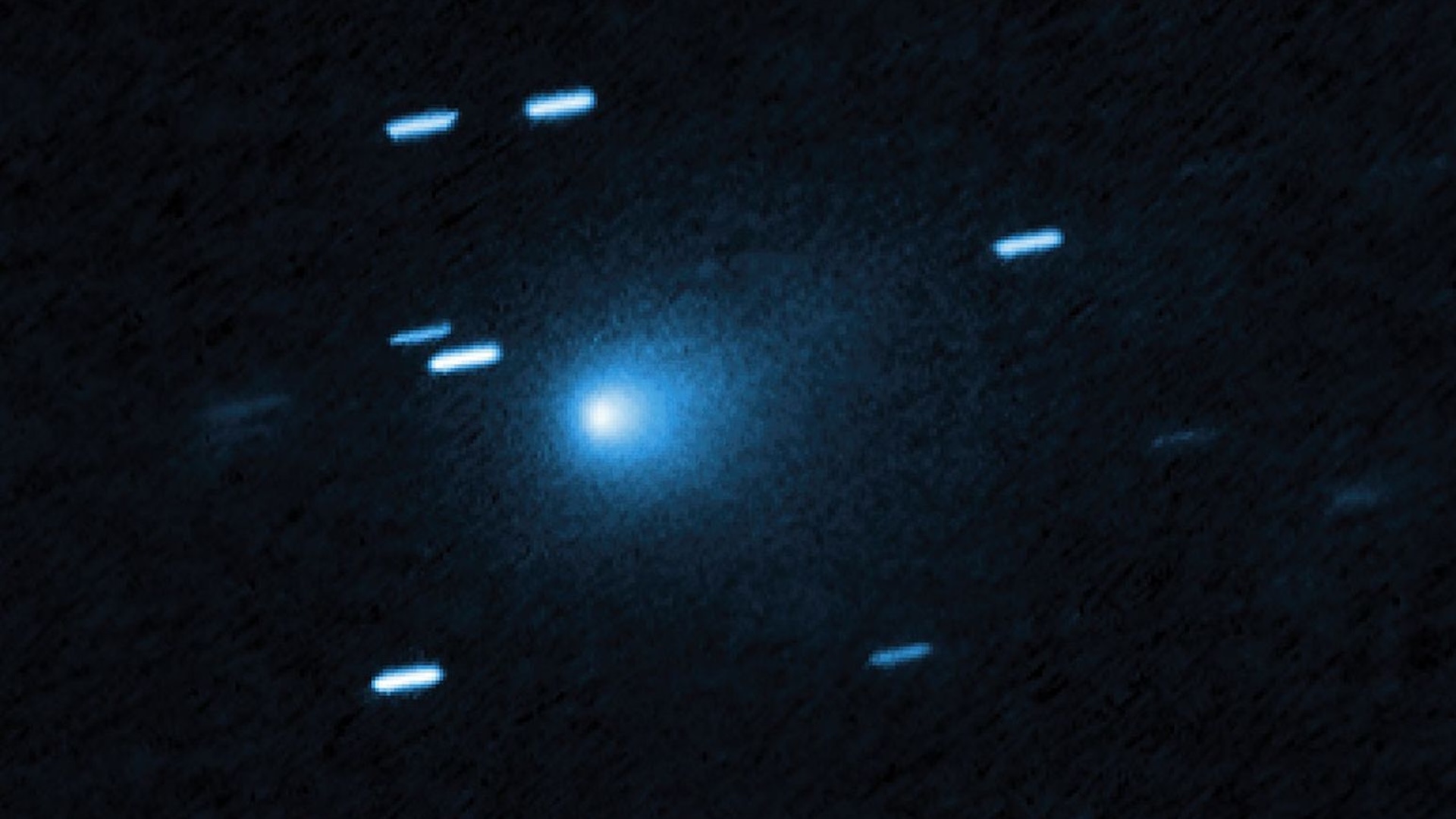
A blurry image of Comet 3I/ATLAS as it zooms through space. (Image credit: NASA, ESA, David Jewitt (UCLA); Image Processing: Joseph DePasquale (STScI))
Seems like pretty much everyone wants fresh updates on Comet 3I/ATLAS these days.
Our solar system’s third-ever recorded interstellar visitor is fascinating — at more than 7 billion years old it’s so irradiated that we may never be able to pin down exactly where it came from. But the question on everyone’s lips, and in our inboxes, is whether or not it’s an alien probe.
I’d really love to tell you otherwise, but the answer from most scientists is no, almost definitely not.
You don’t have to take that from me, though. Here’s an article by radio astronomer Laura Driessen on why extraterrestrial speculation is the least interesting question about this truly strange comet.
You can give the story a read here.

Ben Turner
Acting Trending News Editor
2025-11-10T16:12:20.385Z
COP30 kicks off
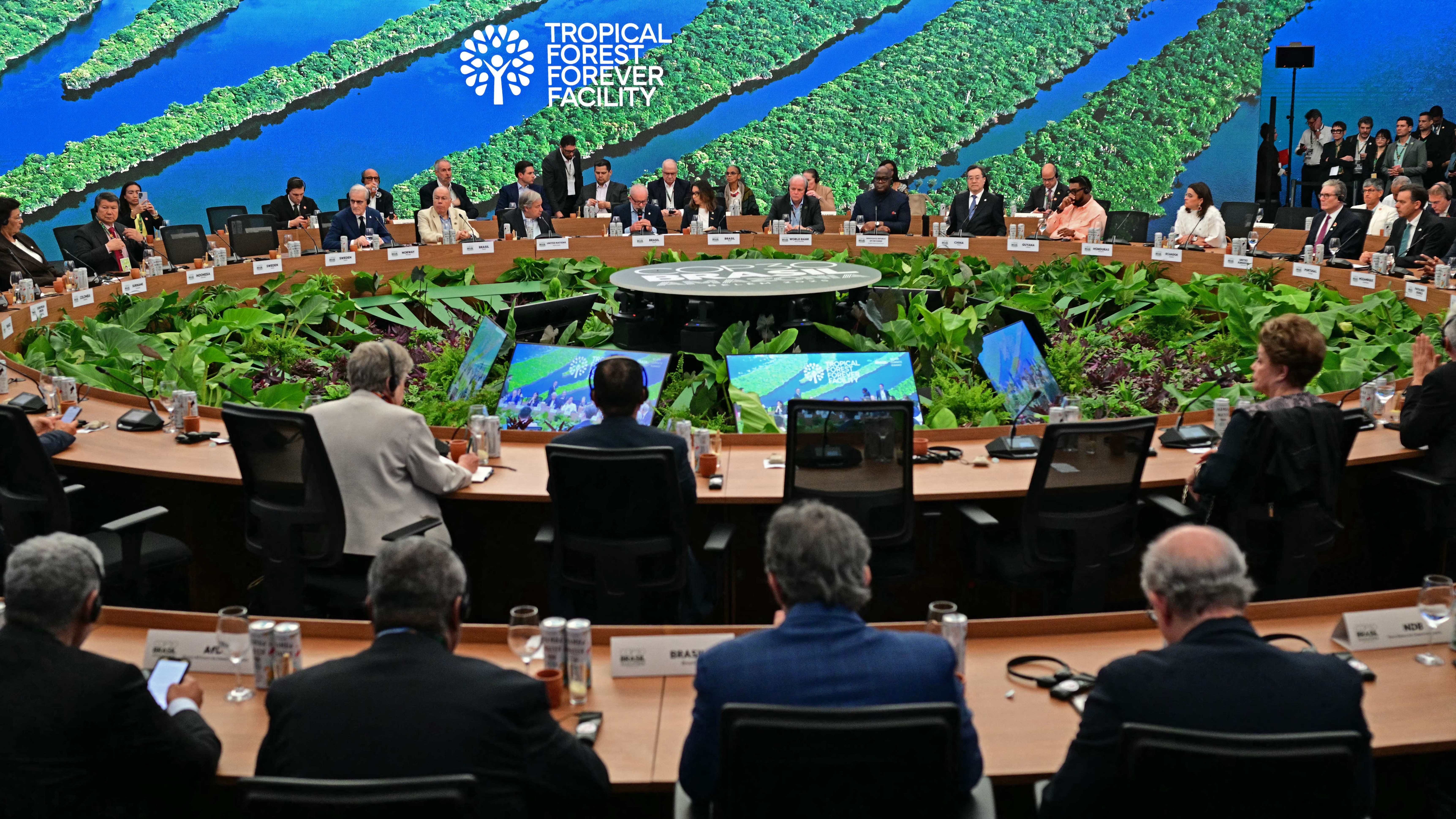
The Leaders’ Round Table to launch the Tropical Forest Forever Facility (TFFF) on November 6, 2025. (Image credit: Pablo Porciuncula/AFP via Getty Images)
The opening ceremony of COP30 has wrapped up in Belém, Brazil. You can watch it here. It wasn’t like an Olympic opening ceremony or anything like that — not one singing headless Marie Antoinette in sight. Still, there were a couple of impassioned speeches and traditional musical performances.
Most importantly, this year’s major climate conference is officially underway. Simon Stiell, the UN Climate Change Executive Secretary, highlighted the progress humanity had made since the signing of the Paris Agreement 10 years ago at COP21, during which world leaders promised to limit global warming to preferably below 1.5 degrees Celsius (2.7 degrees Fahrenheit) and well below 2 C (3.6 F). However, as the UN announced last week, we’re still expected to overshoot the 1.5 C target.
“We must move much, much, faster on both reductions of emissions and strengthening resilience,” Stiell said. “The science is clear: we can and must bring temperatures back down to 1.5C after any temporary overshoot. Lamenting is not a strategy. We need solutions.”
Stiell will be looking for countries to collaborate on those solutions this week, but as Ben noted this morning, many leaders are no-showing this year’s conference. Among the notable absentees are President Donald Trump, China’s Xi Jinping and India’s Narendra Modi — the heads of the three biggest emitting countries.
2025-11-10T15:21:56.557Z
In case you missed it
—Ram-shaped teapot from ancient Canaanite cult discovered near ancient city of Armageddon
A very interesting teapot.
—Antibiotic found hiding in plain sight could treat dangerous infections, early study find
Scientists have discovered a new antibiotic compound that shows promising activity against drug-resistant infections, so that’s good.
—NASA’s ultraquiet supersonic ‘flying swordfish’ makes history with first test flight
NASA has unveiled an experimental supersonic plane that looks like a swordfish. Swordfish are among the fastest animals in the ocean, but their commonly cited swimming speeds are very unreliable. NASA’s new plane reached a top speed of about 240 miles per hour (386 kilometers per hour).
A terrifying, but potentially very useful, walking chair.
—How to watch ‘Kingdom’ — TV and streaming details for David Attenborough’s new BBC series
New nature series narrated by the 99-year-old Sir David Attenborough.

Patrick Pester
Trending News Writer
2025-11-10T14:01:18.860Z
Mysterious Andean holes explained
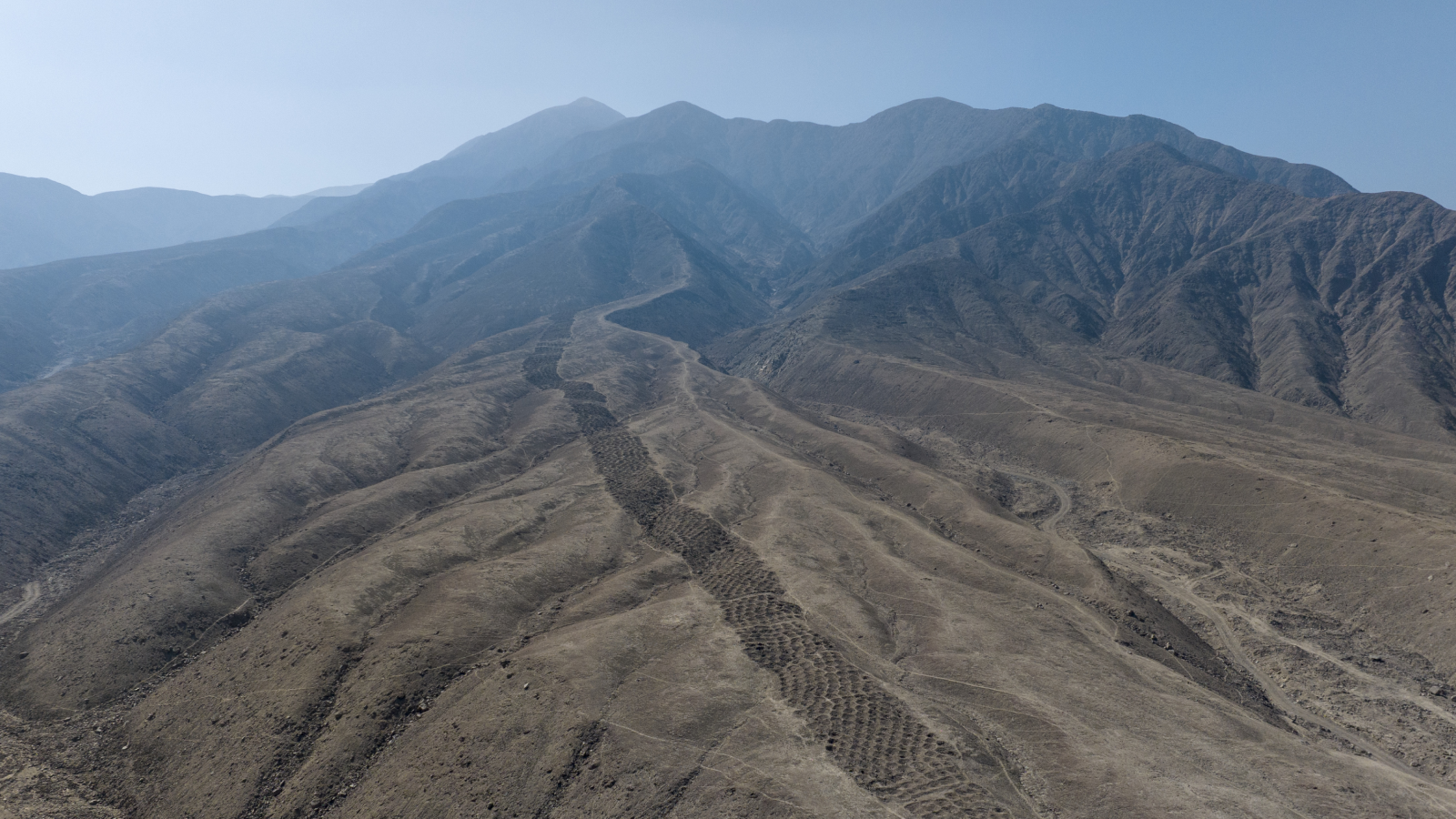
An aerial photo of the “band of holes” in southern Peru. (Image credit: J.L. Bongers; Antiquity Publications Ltd; CC BY 4.0)
Some 5,200 holes sit in ordered grids along southern Peru’s Serpent Mountain, many of them dating back more than a thousand years. So what could explain them? Long-forgotten rituals? Fog capture technology? Human sacrifices? Aliens?
A new suggestion made by archaeologists posits that the real answer isn’t quite that exciting (although it’s still pretty cool): The holes were likely used as accountancy tools in barter markets for goods along trade routes.
You can read the full story here.
2025-11-10T13:58:30.102Z
Giza break

The Pyramid of Menkaure on the Giza plateau. (Image credit: Joanot via Getty Images)
Two voids found on the eastern side of Egypt’s Pyramid of Menkaure could point to a second entrance to the ancient tomb, tests that used electrical currents and ultrasonic waves have hinted.
You can check out the full story here.
2025-11-10T13:23:04.157Z
The weekend’s biggest news
We can’t always bring you breaking science news as it happens — sometimes our loved ones, days off and sleep schedules get in the way. Here’s some of the biggest science news that happened over the weekend:
A powerful 6.9 magnitude earthquake rattled the northern coast of Japan on Sunday (Nov. 9). Thankfully, there have been no immediate reports of injuries or damage, no abnormalities at the two nuclear power plants in the area, and a tsunami warning following the quake was downgraded.Health officials are investigating 13 cases of infant botulism across 10 states linked to a recalled baby formula.Blue Origin’s New Glenn rocket was scheduled for launch on Sunday (Nov. 9) but it has been delayed until Wednesday (Nov. 12) due to poor weather conditions. The launch will be the first big test for the rocket’s first NASA mission, and a statement of intent for the company’s founder Jeff Bezos against competitor SpaceX.
2025-11-10T13:13:45.553Z
Monkey business is closed

A rhesus macaque photographed in India. (Image credit: McDonald Wildlife Photography Inc. via Getty Images)
Two weeks ago, Patrick covered news of several lab monkeys that escaped from an overturned truck in Mississippi that were allegedly diseased and dangerous.
On Friday night, we finally got news that the last of these monkeys has been tracked down following a report from a resident whose dog alerted her to its presence. Five of the escaped rhesus macaques were sadly killed by police, yet authorities say that this monkey was “successfully recovered.”
2025-11-10T13:12:29.397Z
Good COP, bad COP

COP30 is getting under way, and it promises to be more contentious than ever. (Image credit: Shutterstock)
Good morning, science fans! Ben here, back for another round of updates on the latest science updates from around the world.
While we’re speaking of the pale blue dot that we call home, it’s in a spot of trouble due to human-caused climate change, as it speeds toward near-certain overshoot of climatic guard-rails set by 2015’s Paris Agreement. That’s why delegations from 194 countries are meeting in Brazil for the UN’s COP30 conference, making yet another attempt to forge better plans to stay within the agreement’s limits and phase out fossil fuels.
This year’s conference promises to be particularly contentious, with many leaders being no-shows and the Trump administration having exited the process entirely.
Where that leaves this conference is entirely unclear: Brazil insists that this year’s conference will be one of “implementation”, whereby countries focus on what they can contribute toward real-world impacts instead of striving toward longwinded, often defanged, consensus. Whether that means some countries can get away with contributing very little, and what can be done to counteract this, remains unclear.

Ben Turner
Acting Trending News Editor

